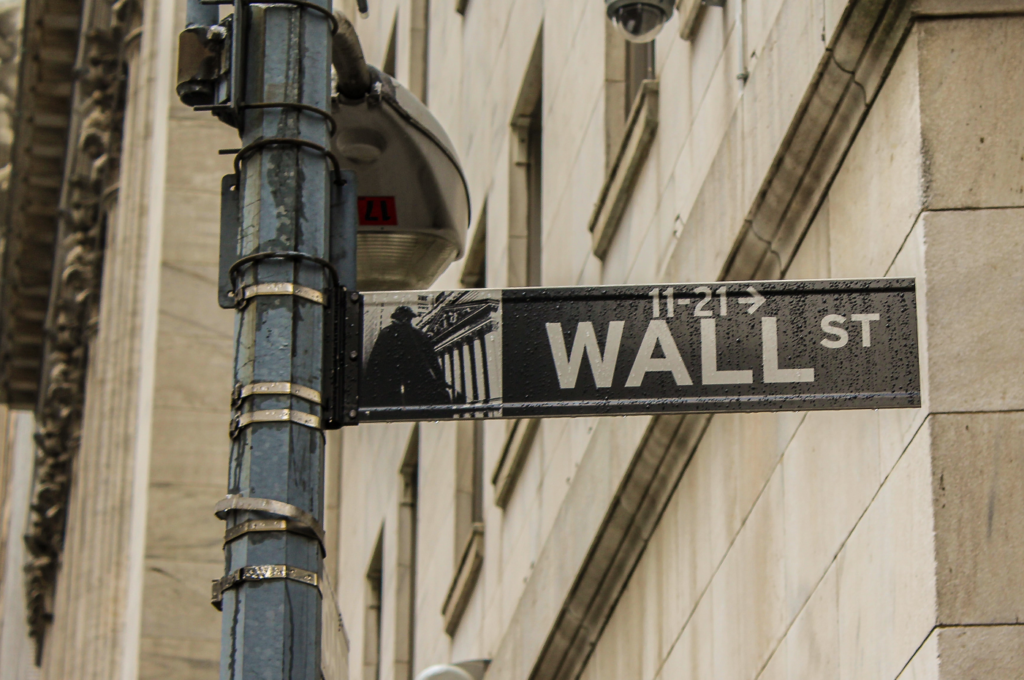It’s no secret that the right is divided these days. Whether the topic is national security or economics, many groups who once didn’t hesitate to line up against common opponents are now openly and often aggressively at odds. In areas like social policy or foreign affairs, these fissures have been evident for some time. Divisions about economic policy have become sharper over the past five years. The relatively pro-market consensus that for decades united many against interventionist and collectivist economics no longer exists.
Some of these economic divisions are less about markets than about other issues. They range from economic liberalization’s implications for social cohesion, to America’s relationship with China—a country which has not, it turns out, become “just like us” as a result of China’s wider entry into global markets.
These debates raise important and legitimate questions. But some free marketers have been slow to take them seriously, apparently reluctant to go beyond economics when examining these issues. Likewise, some conservatives have become dismissive of overwhelming empirical evidence for markets as the most effective means of reducing poverty, and they are disinclined to acknowledge the dysfunctionalities associated with excessive state intervention. At times, the two groups give the impression of talking past each other.
This wasn’t always the case. In his 2012 book The Great Persuasion, Angus Burgin illustrates that prominent free market thinkers in the 1940s and 1950s were profoundly interested in normative questions. They also thought about how market economies fit into the wider social order. Nor did they sideline the implications of geopolitical facts (like an aggressive Soviet Union) for economic policy.
This type of analysis reached a high point sixty years ago with the English-language publication of Wilhelm Röpke’s A Humane Economy: The Social Framework of the Free Market. Röpke, a German free market economist whose writings were widely read by American conservatives and classical liberals in the 1960s and 1970s, had been an intellectual architect of the 1948 liberalizing reforms that in eight years took postwar West Germany from economic ruin to being Europe’s economic powerhouse. Parts of his book are now dated. Nonetheless, it showed market liberals how to move beyond the world of supply and demand, and it helped conservatives understand why economic freedom should be central to their creed.
Start your day with Public Discourse
Sign up and get our daily essays sent straight to your inbox.A Personal Journey
A Humane Economy represented the culmination of Röpke’s road from being an economist focused on monetary policy, business-cycle theory, and trade issues to engaging continually with philosophy, law, and history. Röpke was well-versed in such subjects: like all other upper middle-class young men of late nineteenth-century Germany, he received an excellent classical education.
Like many of his generation, Röpke was inspired to integrate ideas from other fields into his economic research agenda in response to the crises of his time: the collapse of the pre-1914 international order after World War I and the subsequent rise of totalitarianism. Throughout the 1920s and 1930s, many intellectuals on the left and right attributed these events to what they saw as capitalism’s inherent injustices and chronic instability. They also outlined economic alternatives, ranging from corporatism to outright socialism. Others, like John Maynard Keynes, rethought the very nature of economics.
Röpke’s approach was different. On an economic level, he defended the core institutions of markets, and underscored how government intervention often made economic crises worse. This brought Röpke into direct opposition to Keynes’s economic prescriptions. But Röpke also articulated strong normative criticisms of Keynesian policies, noting the ways in which they undermined links between liberty and personal responsibility. In A Humane Economy, Röpke even labeled Keynes one of “the great intellectual ruiners of history—like Rousseau and Marx.”
More generally, Röpke stressed that the turn to government intervention went hand-in-hand with something more worrying: the corrosion of moral, social, legal, and religious expectations and institutions which had softened commercial society’s harsher edges and addressed those needs that markets cannot serve. Such topics feature prominently in Röpke’s 1942 book, The Social Crisis of Our Time, which first brought him international fame.
Röpke’s way into these issues was the nineteenth-century French liberal Alexis de Tocqueville. It’s important to recognize that Röpke was writing at a time when Tocqueville’s thought was far less cited than it is today. In Tocqueville, however, Röpke found someone as dedicated to freedom and as hostile to socialism as himself. He also discovered a thinker fixated upon the necessary preconditions for sustaining free societies, and whose first reference point for such things was not economic. Economic liberty was essential, to Röpke’s mind, for free and civilized polities. But he was far from confident that it was enough.
This outlook also owed much to the influence of another German market economist who, like Röpke, was forced into exile in 1933 because of his forthright opposition to the National Socialist regime. Alexander Rüstow is not a household name today. But while he and Röpke were teaching at the University of Istanbul in the 1930s, they explored the deeper reasons for capitalism’s crackup and the subsequent turn to the state after 1918.
Rüstow’s detailed conclusions are expressed in his three-volume magnum opus, Freedom and Domination (1950, 1952, 1957). His general thesis was that Western societies had become undone by the influence of abstract rationalism upon the world of ideas (including economics), and the depletion of the cultural resources bequeathed by Judaism, Greece and Rome, and Christianity.
In a sense, Rüstow’s was a conservative critique of post-Enlightenment culture. Nevertheless, he refused to romanticize the past, was critical of reactionary politics, and insisted that many classical liberal ideas had greatly contributed to civilizational development. Rüstow shared Röpke’s conviction that the solution to the problems facing free societies did not lie in Keynesian economics, let alone collectivism. The real issue for Rüstow was how to associate markets with more robust moral and social foundations than abstract commitments to liberty. This is the question that Röpke squarely tackles in A Humane Economy.
Freedom and Realism
In his 1960 preface to A Humane Economy, Röpke stated that he expected to be criticized by adherents of collectivism but also by “moralists and pure romantics” who rejected economics as a social science, alongside “inveterate rationalists” and “prosaic utilitarians,” whose viewpoint he described as “economistic.”
This combination of anticipated critics arises from A Humane Economy’s two central themes. One is Röpke’s unapologetic advocacy of market liberalism. By this he means confidence in economics as a technique for understanding certain dimensions of reality as well as “a particular economic order:” specifically, “the spontaneous and free cooperation of people through the market, price, and competition,” with private property as “the pillar of this free order.” In 1960, that put Röpke at odds with social democrats and Marxists but also the many centrists and conservatives who had embraced the Keynesian orthodoxies that dominated the economics profession and the world’s finance ministries. Such unchallengeable nostrums included the necessity of a large welfare state.
Röpke was an outspoken opponent of postwar welfare states. In a 1950 report authored at the West German government’s request, Röpke told government ministers that, despite the economic fruits of the 1948 reforms, Germany was already spending too much on welfare. The economic consequences, Röpke reasoned, would include higher taxation, ever-extending wealth redistributions, and society’s growing bureaucratization. Over time, he maintained, these trends would corrode many prerequisites for economic freedom and sustained economic growth.
Economics, however, was only part of the basis of A Humane Economy’s critique of welfare states. Their more significant problems, to Röpke’s mind, were political and social. Political leaders of all stripes, he stressed, now viewed welfare as a means for building dependable and dependent voting constituencies. Even more critically, welfare states would crowd out those forms of associational life that were generally better at addressing social dysfunctionality and the non-economic features of poverty than state officials.
This bring us to the more conservative characteristics of Röpke’s thought. Some of this conservatism reflected his rejection of what Röpke believed to animate the left. For all their rhetoric about justice, Röpke believed that progressive thought was more driven by abstract rationalism, economism, utilitarianism, and materialism. While these manifested themselves vividly in socialism and Marxism, Röpke also held that such mindsets had influenced some strains of liberal thought. A self-described liberal utilitarian, he observed, could have no in-principle objection to socialism if socialism turned out to be more efficient than markets.
Another aspect of Röpke’s conservatism concerns his realism about the human condition. Dreams of human perfectibility in this world, he believed, underlay the worst tyrannies, whether Soviet totalitarianism or the Terror of the French Revolution. By contrast, commercial societies required the ethics of what Röpke called “an intermediate plane:” “not the summit of saints and heroes,” but also not “the lowlands of open or concealed struggle in which force and cunning determined the victor and the vanquished.”
Röpke described this perspective as a type of “bourgeois philosophy.” Such thinking, which he associated with Adam Smith and Montesquieu, emerged in the eighteenth century alongside modern commercial societies. According to Röpke, it held that there is “nothing shameful in the self-reliance and self-assertion of the individual taking care of himself and his family.” It also gave a prominent place to “virtues of diligence, alertness, thrift, sense of duty, reliability, punctuality, and reasonableness.” Without these habits, Röpke argued, people would not defer gratification, entrepreneurs would not take risks, businesses would not grow, and commercial transactions would struggle to be sustained over the long term.
Bourgeois Virtues Are Not Enough
For all his recognition of their importance, Röpke did not believe that “bourgeois virtues” sufficed as a basis for societies that aspired to be free and civilized. Like Adam Smith’s Theory of Moral Sentiments, Röpke’s Humane Economy insisted that decidedly non-commercial values were equally critical. Indeed, he indicated that commercial societies required, at some level, a religious foundation.
Röpke did not think that religious skepticism was necessarily a threat to liberty. He took religious freedom seriously and didn’t idealize societies in which churches had exercised temporal power. Röpke did, however, maintain that “man is Homo religiosus” by nature. History had proven, he wrote, that it is a grave error to think that we can “get along without God,” not least because “in the place of God we have set up the cult of man, . . . his technical achievements, and his State.” Drawing upon the philosopher Eric Voegelin, Röpke contended that humans had shown that they “cannot live in a religious vacuum.” Instead they end up clinging to “surrogate religions of all kinds, to political passions, ideologies, and pipe-dreams.”
Röpke’s God was the God of the Hebrew and Christian Scriptures: one who conferred upon human beings the unique capacities of reason and will, and who made humans as individual and social as well as creative and responsible. But these faiths also contributed the essential insight that humans are sinful and fallible. That reality alone, Röpke suggested, should cause people to think twice before giving excessive power to the state, and should help them appreciate that markets are more attentive to such anthropological truths than Keynesian or socialist arrangements are.
Whether one should call Röpke’s thought “liberal conservative,” “conservative liberal,” or “fusionist” is unimportant. Röpke himself worried little about labels. What matters is Röpke’s way of thinking through the complexities of how to sustain free societies. Though he insisted upon the legitimate autonomy of social sciences like economics, he wasn’t afraid to transcend disciplinary boundaries to arrive at integrated insights into the truth. Likewise, Röpke understood the respective strengths and weaknesses of classical liberal and conservative positions and used them to reinforce or, if need be, to correct each other. It’s a model that those who seek to map out the future of the free market and conservative movements today would do well to emulate.














